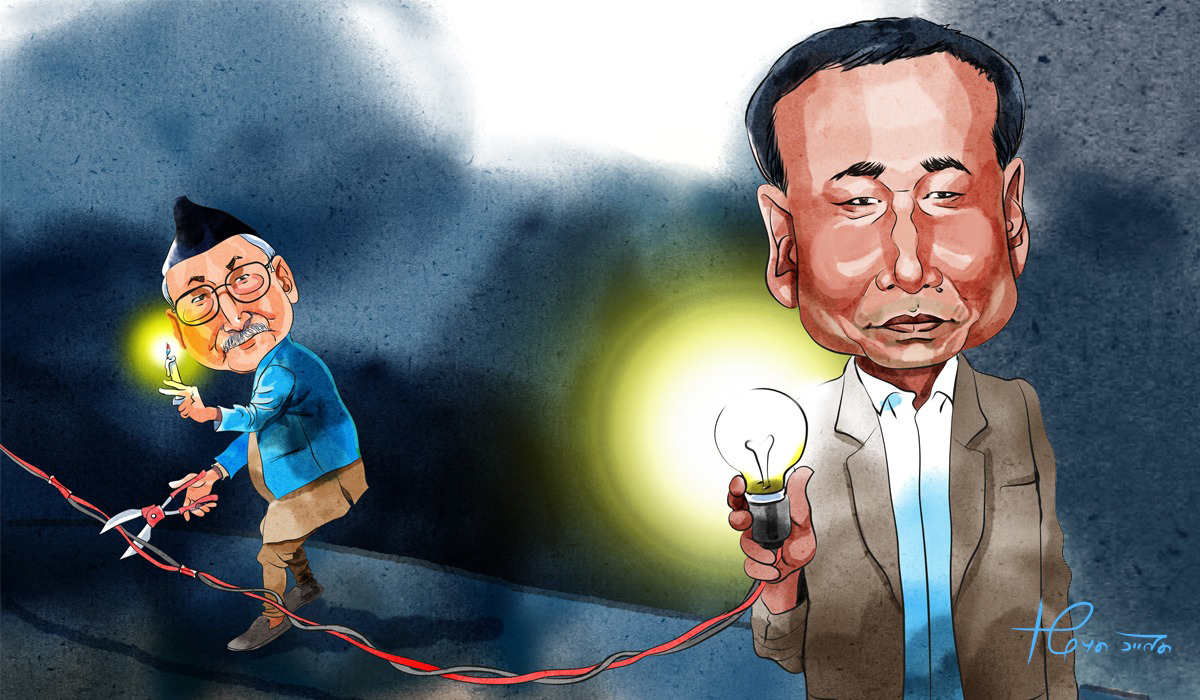KATHMANDU: The Cabinet meeting held on Monday evening has dismissed Kulman Ghising from his position as the Managing Director of the Nepal Electricity Authority (NEA). The decision, made under the leadership of Prime Minister KP Sharma Oli, has raised significant concerns about the government’s intent and its implications for the country’s energy sector.
Key questions raised by the decision
First question: How will this abrupt and seemingly humiliating dismissal affect the morale of other government employees? Ghising’s tenure was set to end in a couple of months, yet he was removed prematurely without any clear justification. Was his dismissal mandated by the court or the authority? If not, what crime warranted his immediate removal?
Second question: Why does the government adopt a strict stance against ordinary citizens who fail to pay their electricity bills, yet industrialists who owe billions are given leniency? Ghising had been firm on recovering outstanding dues from businesses, which put him at odds with powerful industrialists. Did the Oli-led government act under pressure from these business groups?
Third question: During the recent power shortage caused by low electricity imports from India, Ghising prioritized the public by reducing nighttime electricity supply to industries. Now that he has been removed, will the government ensure uninterrupted electricity for both industries and households? Or, as Energy Minister Deepak Khadka warned, will load shedding return?
Fourth question: Ghising’s dismissal is widely viewed as an unpopular decision. Public dissatisfaction with the government is already high, and this move is likely to deepen frustration. How does the government plan to address growing public outrage?
Fifth question: What does the government expect to gain from Ghising’s removal? How will it now handle the collection of unpaid electricity bills from industrialists? Will it continue to grant exemptions while struggling with revenue shortages?
Sixth question: When the Oli government was formed, questions arose regarding a conflict of interest involving Energy Minister Khadka, who has investments in the hydropower sector. Instead of addressing these concerns, the government removed Ghising, who had been vocal about ministerial interference. Will this decision benefit or harm the UML in the upcoming elections?
Seventh question: Will the Nepali Congress-UML government face political backlash in the 2027 elections for dismissing a widely respected figure like Ghising? Leaders of both major parties must assess whether this move will cost them public trust.
Eighth question: If Ghising challenges his dismissal in the Supreme Court and the court overturns the decision, who will take moral responsibility? Will Energy Minister Khadka resign, or will questions also arise about Prime Minister Oli’s accountability?
Ninth question: At a time when public discontent with the government is rising, what rationale did the government use to remove a highly regarded official? Was this decision driven by genuine governance concerns or political motives?
The government’s move has triggered widespread debate, and its long-term consequences—both for Nepal’s energy sector and its political landscape—remain to be seen.









Comment